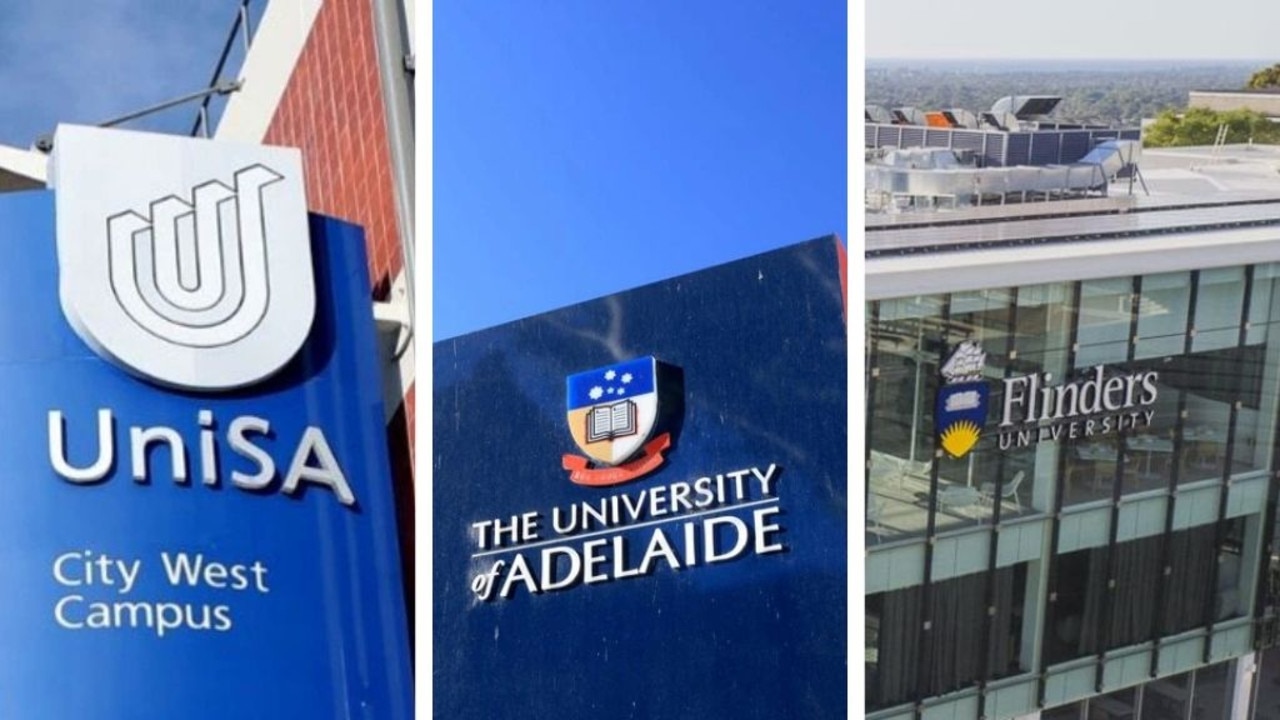Taxpayers face annual $1bn bill to meet education union’s demands
Taxpayers face staggering annual bill to meet the demands of SA’s teachers union, as negotiations over wage rises and “excessive” workloads continue.

Education
Don't miss out on the headlines from Education. Followed categories will be added to My News.
Taxpayers face an annual bill of $1bn extra to meet the demands of the state’s teachers union to ease “excessive” workloads in classrooms, as negotiations over a new three-year deal ramp up.
The huge price tag would cover measures to free up teachers to spend more time with students and less on paperwork – but comes on top of claims for wage increases of up to 8.6 per cent a year.
The union says teachers are currently doing $1bn worth of largely administrative work for free and managing more children with increasingly complex needs, and it is “not ashamed” of its “bold” agenda.
But senior government sources say the Australian Education Union has been told to narrow its scope and the Education Department boss has all but ruled out agreeing to a key demand that would cost “hundreds and hundreds of millions of dollars”.
AEU SA branch president Andrew Gohl told the Sunday Mail teachers were leaving the profession because of spiralling workloads and a major funding boost was needed.
“It’s a lot of money but we’re not ashamed by that; this is the amount of money that needs to be spent,” Mr Gohl said.
“What we’ve said to the government is that represents $1bn of goodwill that South Australian educators are putting in to make the system work.
“It’s $1bn of work that people are doing after hours. That’s how much we are papering over the cracks.”
Asked if the state could afford the cost, Mr Gohl said: “Governments have the money, it’s just that they choose not to invest it in public education. They choose to spend it on other stuff.”
“The department and the government know full well we’re happy to discussed every element of that (claim),” he said.
Mr Gohl said the union was seeking wage increases for educators of 8.6 per cent in the first year and 5.5 per cent thereafter, to combat rising inflation and provide an incentive to address a worsening teacher shortage.
“It meets the cost-of-living pressures for educators and puts us in a strong position to attract and retain educators,” he said, adding SA teachers were currently the lowest paid in the nation.
The previous agreement between the AEU and government settled on a 2.35 per cent pay rise for teachers and 3.35 per cent for principals and preschool directors.
A government spokeswoman said it was “committed to bargaining in good faith with the AEU”.
She said the government had received an official log of claims from the union late last month and returned “an offer that brings teachers up from being the worst paid in Australia and is consistent with the pay rise provided to nurses”, which was 3 per cent.
“The offer also takes significant action to reduce workload, expands paid parental leave and provides significant extra supports for complexities in the classroom,” the spokeswoman said.
However, one of the key measures the union is calling for is to address rising numbers of students with complex needs in classrooms has been all but ruled out by Education Department chief executive Martin Westwell.
The AEU wants a School Support Officer (SSO) allocated to every classroom, in addition to the teacher.
Currently, SSOs are only allocated if a child in the class is assessed as needing their support.
Professor Westwell said it was unrealistic to expect SSOs in every classroom in hundreds of schools.
“The cost of that would be absolutely phenomenal. We’d have to stop doing a lot of things within the department if we were to be able to fund that,” he said.
“If you take every classroom in the state and multiply it by the earnings of SSOs you’re talking about hundreds and hundreds of millions of dollars.”
Professor Westwell said the department and the union “want the best outcomes for our kids (and) we want our teachers to have the pay and conditions they deserve”.
The last round of enterprise bargaining negotiations between the AEU and government began in May 2018 and were not agreed on until February 2020.
Teachers took industrial action including strikes that shut down hundreds of schools or forced them to operate with limited programs.


